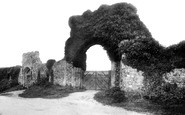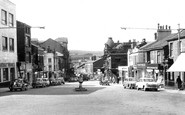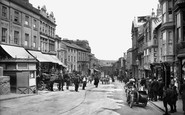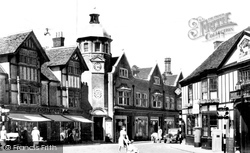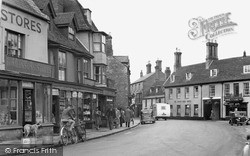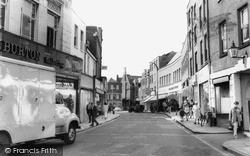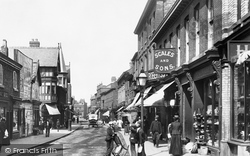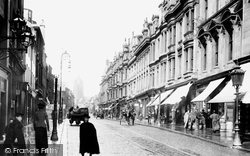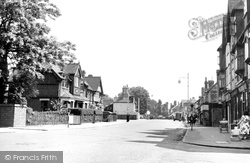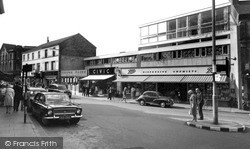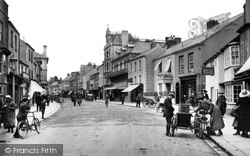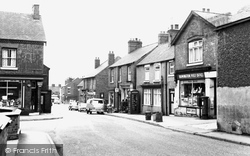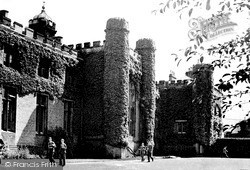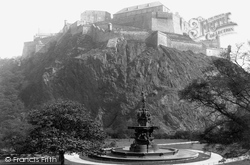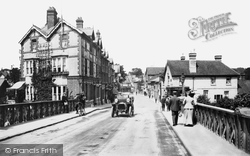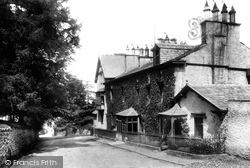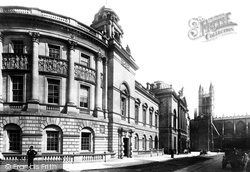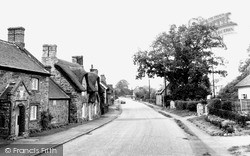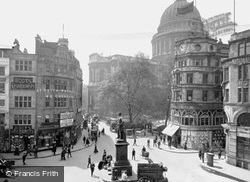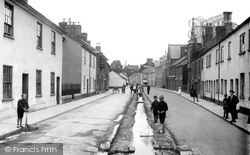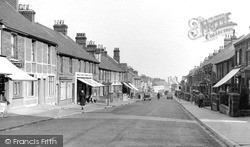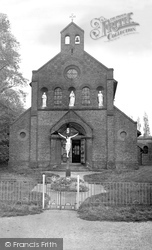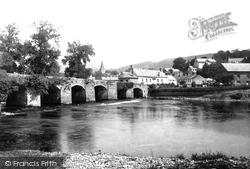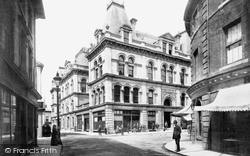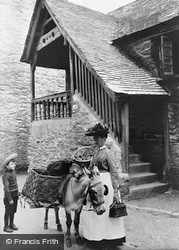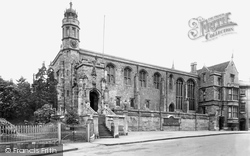Places
4 places found.
Those places high-lighted have photos. All locations may have maps, books and memories.
Photos
115 photos found. Showing results 241 to 115.
Maps
21 maps found.
Books
Sorry, no books were found that related to your search.
Memories
1,091 memories found. Showing results 121 to 130.
Raglan Castle Street
My childhood memories of Raglan are indelible in my mind. I lived with my Aunt and Uncle (Bessie and Ernie Morgan) at No 3 Castle Street during the war years. I well remember my first day at school, sitting on the obelisk at the ...Read more
A memory of Raglan by
Dunwich Monastery Gateway
My earliest memory of Greyfriars in Dunwich was probably driving down the hill in my grandfather's old car in 1960 as he brought me to my new home at The Barne Arms Hotel. I had been at boarding school at Dollar in ...Read more
A memory of Dunwich in 1965 by
Saxby Street
Does anyone remember Harry Wright's Coalyard. We lived immediately opposite at No. 54, on the corner of Pomfret Street. I came home early from school one day and realised I didn't have a key, so thought nothing of asking ...Read more
A memory of Irlams o' th' Height by
Drake Street
I was born in Rochdale in 1934. I attended Champness Hall Sunday School, 1940 -52, which was situated just below the Rochdale Observer offices (on the left of the photo). It was a large Methodist Central Hall with offices used by ...Read more
A memory of Rochdale in 1952 by
Penzance Market Jew Street
As a boy I must have walked up and down Market Jew Street hundreds of times. In particular I along with friends would visit the local Woolworth's where we liked to partake of various flavoured "Milk Shakes" Later during ...Read more
A memory of Penzance in 1940 by
Mobo Horses
We moved to Prestatyn in 1948. I loved the Mobo horses that the little ones could ride at the Bastion Road beach. My little school was Pendre, up the hill Fforddlas I think. Also going to St Chad's School annual fair and sale. Always ...Read more
A memory of Prestatyn in 1950 by
War Years
We lived first in Vinson Close, then in Glencorse in the High Street, next door to the Commodore. My friends included Eric Cox, who lived opposite in a flat over the undertaker's; Les Forrow, whose father was manager of a grocer's ...Read more
A memory of Orpington in 1940 by
Priory Road 1962 To 1988
My father, William J Smith (Bill) had a newsagent at 47 Priory Road between 1962 and 1988 which was opposite Ports the Bakers. I remember seeing queues of people coming out of the Bakers on a Saturday morning to get ...Read more
A memory of South Park in 1970 by
Court Crescent Junior School And Wellinger Way
I was born at my Grandmother's home at No: 50 Hand Avenue on the Braunstone Estate. When I was about 3 we moved from Grandma's to our own home at No: 9 Wellinger Way. I went to Queensmead ...Read more
A memory of Braunstone Town by
Saturdays
I went to Ferndale nearly every Saturday with my Mum and brother to visit my grandparents and my Great Aunt and Uncle. My grandparents, the Gambles, lived in Brynhyfryd and we would get off the bus at the bottom of the hill on the Strand ...Read more
A memory of Ferndale by
Captions
544 captions found. Showing results 289 to 312.
The first shop was in a house in South Street, and then new premises were found in Swan Street, to the left of the island site. As business grew, it moved in 1875 to this site in Bocking End.
Tomlinson's Stores is now the premises of Age Concern, and Goss Bros is now a tea shop.
Comparing these views gives an inkling of the decline that was to befall the street in later years.
This was one of the principal shopping streets of the town, though the Methodist New Connection chapel and the Salvation Army Hall were also along here.
The majority of the buildings on the right are still standing, but many on the left have gone to make way for new stores.
Hare Street existed long before the creation of the garden suburb of Gidea Park but has now all but lost its separate identity.
This view looks back towards Woolworth's from Bakehouse Hill, where the mini-roundabout marks the convergence of the High Street, Gold Street and Lower Street.
The Horse and Groom together with the next two buildings made way for a road; the Queens Head inn now occupies a corner of the new road - Queen Street.
Brimington is one of a number of similar former coal mining villages to the east of Chesterfield, and today villages like this are seeking a new identity.
By 1740 the original premises were very dilapidated; the Manor House at the south end of High Street was purchased for £1,000 to provide a new Master's House.
The gardens, the railway line and Princes Street occupy the area once covered by the waters of Nor' Loch.
Taken on the old Caversham bridge, this view looks into Caversham's Bridge Street with on the left the double gabled Taylor's Hotel of 1891; by 1908 it had been renamed the Thames Valley Hotel.
The origins of this rambling building, which overlooks the main street, lie in a 15th-century farmhouse, and until the New Inn was built in the 1640s, it also served the village as its ale-house.
In this view the northern wing, which turns the corner into Bridge Street, is still virtually brand new.
Pretty cottages with iron latticed windows compliment thatches old and new all along the main street.
Paternoster Row, on the right, was once a fashionable shopping street patronised by Pepys and his wife.
Castle Street runs north from the town centre. Two boys are using the drainage dyke to sail their toy yacht. The town was once a significant cloth-producing centre, renowned for its kersey.
In this view from the High Street, a man sits under the awning outside the Rainham and District Co-operative Society shop, opposite the wine merchant's shop of J Owen Carter.
Its predecessor was St Edith's - a house of Ursuline Sisters at the southern end of the High Street. They celebrated Mass there from 1910 until they left the town three years later.
The first shop was in a house in South Street, and then new premises were found in Swan Street, to the left of the island site. As business grew, it moved in 1875 to this site in Bocking End.
In the centre the long white building is the 16th-century Bridge End Inn, at the junc- tion of New Road and Bridge Street.
The earlier Corn Exchange on Cornhill was demolished in 1880 for the new post office. The replacement was built in 1882 in a mixture of Italianate styles, with French pavilions on the roof.
A lady in traditional dress poses with her pannier donkey in Higher Market Street, East Looe, outside the old 16th-century guildhall.
The external view shows the war memorial, which now has the inevitable extension beneath it to include those who died in the Second World War.
Places (4)
Photos (115)
Memories (1091)
Books (0)
Maps (21)

